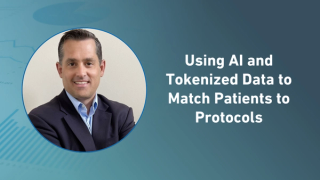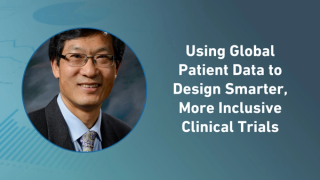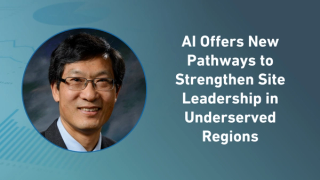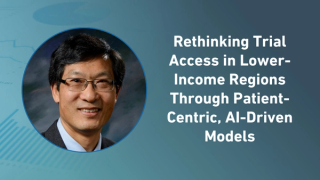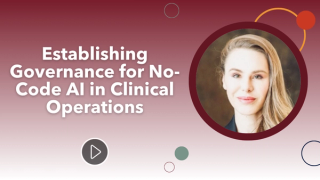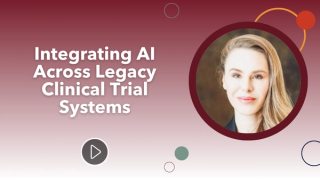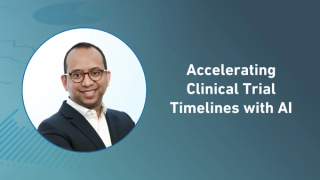
Artificial Intelligence/Machine Learning
Latest News

Latest Videos

More News

The convergence of AI, decentralized technologies, behavioral science, and real-world evidence opens the door to a new era in which the clinical trial industry proactively addresses participation barriers, integrates social determinants of health, and reimagines patient centricity.
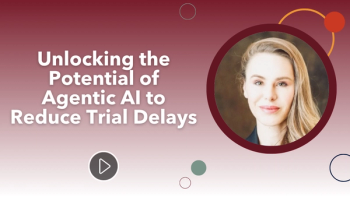
Gain insight into how AI-powered agents can eliminate inefficiencies, shorten development timelines, and free clinical teams to focus on strategic decision-making.

Remote monitoring solution for cytokine release syndrome paves the way for more consistent patient care, a deeper understanding of immune responses, ultimately widening patient access to life-saving immunotherapy and reducing recruitment barriers in clinical trials.

Michel van Harten, MD, CEO, myTomorrows; and Kyle McAllister, co-founder, CEO, Trially, discuss how artificial intelligence can reduce barriers for underrepresented patients and streamline prescreening and outreach to support clinical research participation.
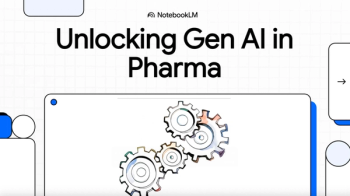
Maximizing AI’s potential in medical writing and regulatory submissions requires data standardization, objective content practices, and a streamlined document ecosystem that accelerates timelines while ensuring compliance.

In this Q&A, Randa Wahid of Indero, and Lyn Mursalo, a freelance clinical research professional, share how sponsors and CROs can build collaborative partnerships, navigate global trial complexities, and apply practical strategies to deliver studies on time and with quality.
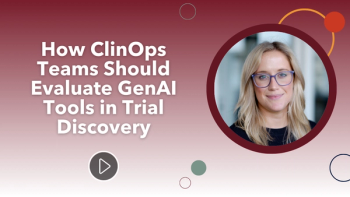
In this video interview, Adrianne Rivard, senior community development manager at myTomorrows, explains why compliance with privacy standards and physician training are critical for safe and effective use of GenAI in clinical trial discovery.

Aligning artificial intelligence with patient needs, trial workflows, and employee experience enables adoption, builds trust, and ensures AI delivers measurable impact across clinical operations.
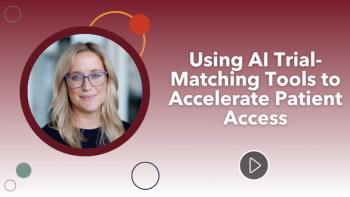
In this video interview, Adrianne Rivard, senior community development manager at myTomorrows, discusses how AI-powered pre-screening integrated into referral workflows can streamline eligibility checks and speed patient access to treatments.
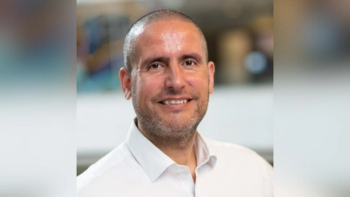
In this Q&A from the 2025 Veeva R&D and Quality Summit, Ibrahim Kamstrup-Akkaoui, vice president of data systems innovation at Novo Nordisk, discusses simplifying system use through the company’s DataNow program and taking a measured, stepwise approach to applying AI and automation across the clinical development lifecycle.

In this Q&A from the 2025 Veeva R&D and Quality Summit, Ibrahim Kamstrup-Akkaoui, vice president of data systems innovation at Novo Nordisk, discusses simplifying system use through the company’s DataNow program and taking a measured, stepwise approach to applying AI and automation across the clinical development lifecycle.
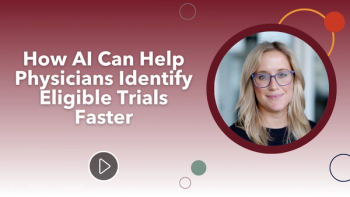
In this video interview, Adrianne Rivard, senior community development manager at myTomorrows, explains how AI can reduce the time physicians spend pre-screening patients for clinical trial eligibility.

In this video interview, Adrianne Rivard, senior community development manager at myTomorrows, explains how AI can reduce the time physicians spend pre-screening patients for clinical trial eligibility.

In this video interview, Sunny Kumar, MD, partner at Informed Ventures, explains how organizational complexity, regulatory caution, and cultural risk aversion slow innovation in clinical trials, while tools like generative AI may help reduce operational barriers.

Strategic AI applications are helping life sciences teams overcome hidden bias, accelerate data discovery, and improve evidence integrity at the start of the pipeline.

Strategic AI applications are helping life sciences teams overcome hidden bias, accelerate data discovery, and improve evidence integrity at the start of the pipeline.
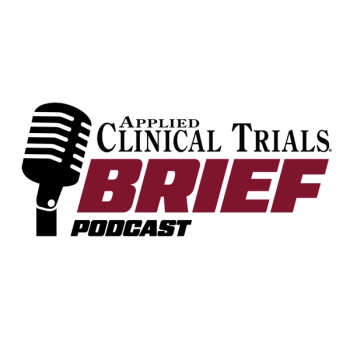
In this episode of the Applied Clinical Trials Brief, we spotlight a recent video interview in which Jon Walsh, founder and chief scientific officer of Unlearn.AI, shared how digital twins can improve trial efficiency, enhance patient-centric designs, align with regulatory expectations, and accelerate access to new therapies.

In this episode of the Applied Clinical Trials Brief, we spotlight a recent video interview in which Jon Walsh, founder and chief scientific officer of Unlearn.AI, shared how digital twins can improve trial efficiency, enhance patient-centric designs, align with regulatory expectations, and accelerate access to new therapies.

In this video interview, Meri Beckwith, Co-CEO of Lindus Health, shares practical ways clinical teams can strengthen trial protocols for expedited programs—such as incorporating control groups where possible, leveraging synthetic and real-world data, and adopting adaptive trial designs to reduce regulatory risk.

In this Q&A, Rohit Nambisan, CEO of Lokavant, and Jonathan Crowther, head of predictive analytics, Pfizer, explore how AI is transforming study feasibility, regulatory review, and trial execution.

Jon Walsh, founder, chief scientific officer, Unlearn, explains how AI and digital twins are helping clinical trials become more efficient, patient-centric, and capable of supporting innovative study designs over the next decade.

Jon Walsh, founder, chief scientific officer, Unlearn, explains how AI and digital twin technologies are being applied to improve data transparency, ensure reproducibility, and strengthen the reliability of clinical trial outcomes.

Jon Walsh, founder, chief scientific officer, Unlearn, explains how regulators are clarifying best practices for integrating AI and digital twins into clinical research.

In this episode of the Applied Clinical Trials Brief, we recap our three most-viewed stories of the previous week with a look into the FDA’s heightened scrutiny of trial design, the wind-down of federal mRNA vaccine programs, and how digital innovation is reshaping the clinical research landscape.

A unified technology approach improves study efficiency and data collection.




